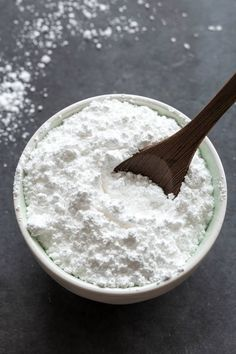"Sugar Free" Explained: Understanding the Concept and Its Implications
## "Sugar Free" Explained: Understanding the Concept and Its Implications
The term "sugar-free" has gained significant traction in recent years, as more people become aware of the health implications associated with sugar consumption. This blog post will delve into what a sugar-free diet entails, its benefits, potential drawbacks, and practical tips for adopting this lifestyle.
### **What is a Sugar-Free Diet?**
A sugar-free diet primarily involves eliminating foods that contain added sugars. This includes processed foods and beverages that often have high levels of refined sugars, such as candies, pastries, sugary drinks, and many packaged snacks. Instead, a sugar-free approach encourages the consumption of whole, unprocessed foods. While some individuals may choose to avoid all forms of sugar—including natural sugars found in fruits and honey—many nutritionists advocate for the inclusion of naturally occurring sugars as part of a balanced diet[1][3].
### **Why Choose a Sugar-Free Diet?**
There are several reasons why individuals opt for a sugar-free lifestyle:
- **Health Benefits**: Reducing sugar intake is linked to numerous health benefits, including weight loss, improved energy levels, and reduced risk of chronic diseases like type 2 diabetes and heart disease. High sugar consumption has been associated with obesity, fatigue, and premature aging[1][4].
- **Addiction and Cravings**: Sugar can be addictive due to its ability to trigger dopamine release in the brain. Many people find that cutting out added sugars helps them avoid the cycle of cravings and energy crashes that often accompany high-sugar diets[2][4].
- **Improved Nutrient Absorption**: Excessive sugar intake can inhibit the absorption of essential nutrients from other foods. By eliminating added sugars, individuals may find that their bodies can better utilize the nutrients they consume[4].
### **Understanding Natural vs. Added Sugars**
It's crucial to distinguish between natural sugars and added sugars:
- **Natural Sugars**: These are found in whole foods such as fruits, vegetables, and dairy products. They come with beneficial nutrients like vitamins, minerals, and fiber that aid in digestion and overall health.
- **Added Sugars**: These are sugars added to foods during processing or preparation. Common examples include sucrose (table sugar), high-fructose corn syrup, and glucose. These added sugars provide empty calories without nutritional benefits[1][6].
### **How to Identify Added Sugars**
When shopping for food products, it's important to read labels carefully to identify added sugars. Ingredients may be listed under various names, including:
- Sucrose
- Glucose
- Fructose
- Maltose
- Corn syrup
- Molasses
- Hydrolyzed starch
If any of these appear on the ingredient list, it indicates that the product contains added sugars[1][2].
### **Tips for Transitioning to a Sugar-Free Diet**
Transitioning to a sugar-free lifestyle can be challenging but manageable with the right strategies:
1. **Start Gradually**: Begin by eliminating obvious sources of added sugars like candies and sugary drinks. Gradually reduce your intake of less obvious sources such as sauces and dressings that may contain hidden sugars[2][4].
2. **Focus on Whole Foods**: Prioritize whole foods such as vegetables, fruits (in moderation), lean proteins, nuts, seeds, and whole grains. These foods are not only nutritious but also satisfying[5][6].
3. **Use Natural Sweeteners Sparingly**: If you need sweetness in your dishes, consider using natural sweeteners like stevia or monk fruit extract instead of refined sugars. Remember that even natural sweeteners should be used in moderation[1][3].
4. **Cook at Home**: Preparing meals at home allows you to control what goes into your food. Experiment with recipes that use whole ingredients without added sugars[4][5].
5. **Stay Hydrated**: Drinking plenty of water can help curb cravings for sugary beverages. Opt for unsweetened drinks like herbal teas or sparkling water[5][6].
### **Potential Drawbacks**
While there are numerous benefits to adopting a sugar-free diet, it's important to consider potential drawbacks:
- **Nutritional Deficiencies**: If not carefully planned, a strict sugar-free diet could lead to deficiencies in essential nutrients if it excludes certain food groups entirely.
- **Social Challenges**: Social situations often involve food that may contain added sugars. Navigating these scenarios can be difficult when adhering strictly to a sugar-free lifestyle.
### Conclusion
Adopting a sugar-free diet can lead to significant health improvements and enhanced well-being when approached thoughtfully. By focusing on whole foods and being mindful of both natural and added sugars, individuals can create a balanced diet that supports their health goals without feeling deprived. As always, consulting with a healthcare professional or nutritionist before making major dietary changes is advisable to ensure that all nutritional needs are met effectively.


Comments
Post a Comment